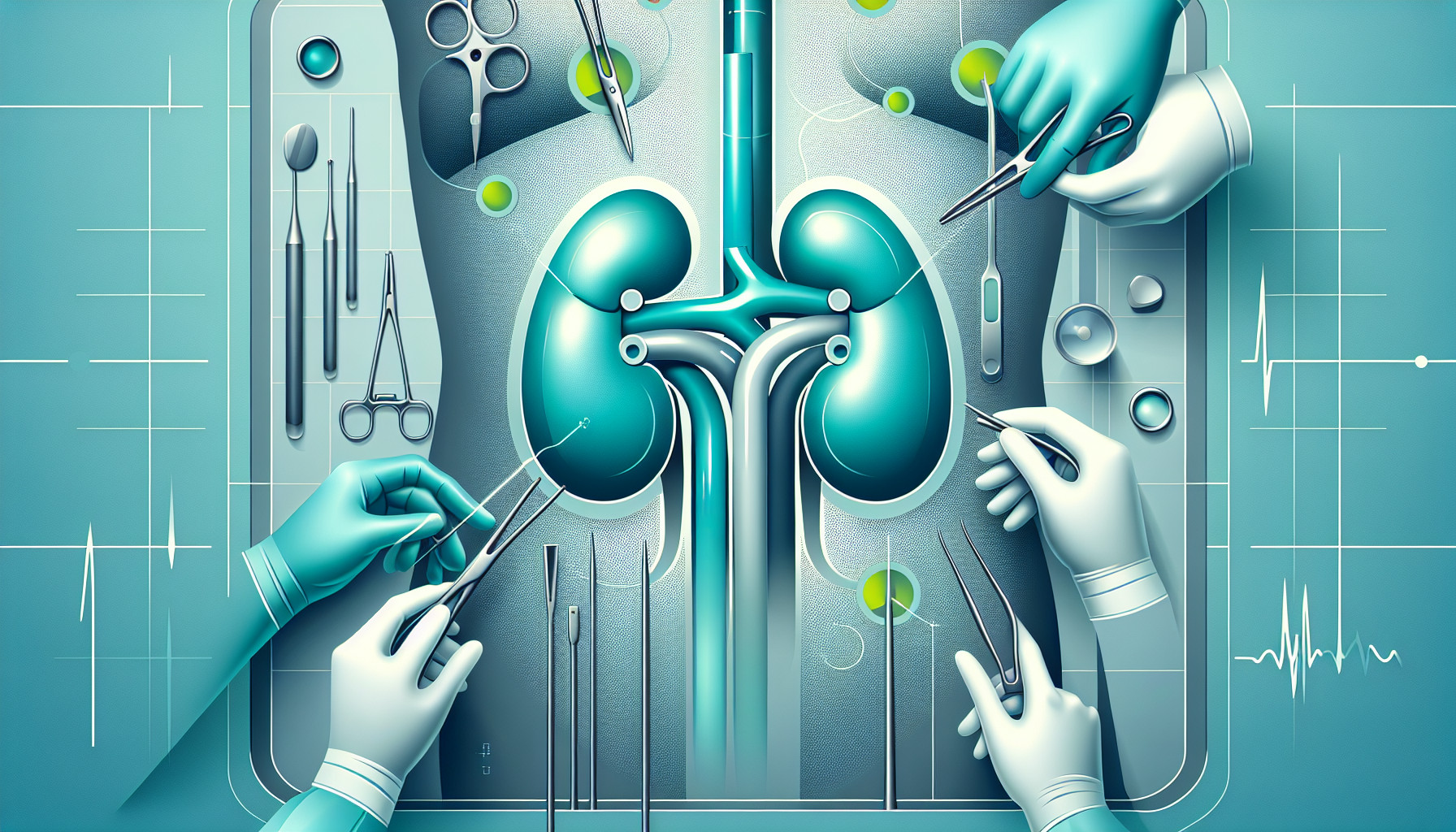Our Summary
The paper discusses the common metabolic risk factors of cardiovascular disease like abnormal glucose regulation, obesity, metabolic syndrome, and others that are present in both people waiting for a kidney transplant and those who have already received a transplant. For those waiting for a transplant, these risk factors can lead to additional health problems, extend the waiting time for a transplant, and in some cases, may even make a kidney transplant impossible or risky. For those who have received a transplant, these risk factors can increase the chances of death and reduce the life of the transplanted kidney. There’s also a risk of interactions between medications for these metabolic disorders and anti-rejection drugs taken after transplant. The paper emphasizes the importance of controlling these metabolic disorders, especially arterial calcification, as it could prevent a person from getting a transplant and affect the outcome of the transplant. It also suggests that the side effects of anti-rejection therapy can be managed with lifestyle changes and careful use of drugs for abnormal glucose metabolism and lipid disorders.
FAQs
- What are the common metabolic risk factors of cardiovascular disease mentioned in the paper?
- How can these risk factors affect individuals waiting for a kidney transplant or those who have already received one?
- What are the suggestions given in the paper to manage the side effects of anti-rejection therapy after a kidney transplant?
Doctor’s Tip
A doctor might tell a patient about kidney transplant:
It is important to maintain a healthy lifestyle to support your new kidney after transplant. This includes eating a balanced diet, staying active, managing your weight, avoiding smoking, and limiting alcohol intake. Following these recommendations can help prevent complications and ensure the long-term success of your transplant. Additionally, make sure to take your medications as prescribed and attend all follow-up appointments with your healthcare team. Communication with your healthcare provider is key in managing your overall health and well-being post-transplant.
Suitable For
Patients who are typically recommended for a kidney transplant are those with end-stage renal disease (ESRD) who are not responsive to other treatments such as dialysis. These patients may have conditions such as chronic kidney disease, diabetes, high blood pressure, or autoimmune diseases that have led to kidney failure. It is important for these patients to undergo a thorough evaluation to determine if they are suitable candidates for a kidney transplant, taking into consideration their overall health, any other medical conditions they may have, and their ability to adhere to post-transplant care regimens.
Timeline
Before kidney transplant:
- Diagnosis of end-stage renal disease (ESRD) requiring dialysis.
- Evaluation for kidney transplant candidacy, including medical, surgical, and psychosocial assessments.
- Placement on the national transplant waiting list.
- Waiting for a suitable donor match, which can take months to years.
- Management of metabolic risk factors such as abnormal glucose regulation, obesity, and metabolic syndrome to improve transplant outcomes.
After kidney transplant:
- Successful kidney transplant surgery.
- Initiation of immunosuppressive medications to prevent rejection of the transplanted kidney.
- Monitoring for signs of rejection and adjusting medications as needed.
- Management of metabolic risk factors to prevent complications such as cardiovascular disease.
- Regular follow-up appointments with healthcare providers to monitor kidney function and overall health.
- Potential complications such as infections, rejection, and side effects of immunosuppressive medications.
- Improved quality of life and reduced reliance on dialysis for kidney function.
What to Ask Your Doctor
- What are the common metabolic risk factors associated with kidney transplant?
- How can these risk factors impact the success of a kidney transplant?
- What lifestyle changes can I make to manage these metabolic risk factors?
- Are there any specific medications I should avoid due to potential interactions with anti-rejection drugs?
- How often should I be monitored for these metabolic risk factors after receiving a kidney transplant?
- What are the potential complications of not managing these metabolic risk factors post-transplant?
- Are there any support groups or resources available to help me manage these metabolic risk factors before and after a kidney transplant?
- How can I work with my healthcare team to create a personalized plan for managing these metabolic risk factors?
Reference
Authors: Piotti G, Gandolfini I, Palmisano A, Maggiore U. Journal: Nephrol Dial Transplant. 2019 Mar 1;34(3):388-400. doi: 10.1093/ndt/gfy151. PMID: 29800310
